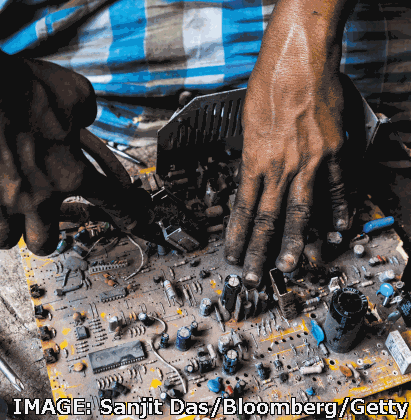Call for safer tech cemetaries
 The world needs to stop dumping its e-waste on developing nations, experts say.
The world needs to stop dumping its e-waste on developing nations, experts say.
A comment piece in the new edition of the journal Nature says international cooperation is needed to stop developed nations offloading defunct electronics onto poorer countries.
Virtually all nations produce electronic waste (e-waste). China processes around 70 per cent of the world’s e-waste, while the rest goes to India and other countries in eastern Asia and Africa.
Because the products contain valuable components such as iron, steel, copper and gold, they are usually melted down and recycled.
But, as experts Zhaohua Wang, Bin Zhang and Dabo Guan write, “disposal plants release toxic materials, volatile organic chemicals and heavy metals, which can harm the environment and human health.”
They say the global approach to e-waste should include:
- an international protocol
- an industry body to certify processing firms and promote technology transfer
- firmer national legislation, banning toxic imports and policing shady ‘second hand’ exports
- greater awareness of the problem among consumers
They also support using radio-frequency identification tags so that researchers and regulators can track electrical components through production and usage to disposal, recovery and remanufacturing.
“The ultimate aim should be a circular economy of cleaner production and less wasteful consumption including the embrace of rental and cloud-based technologies with smaller material footprints,” Guan and colleagues conclude.








 Print
Print